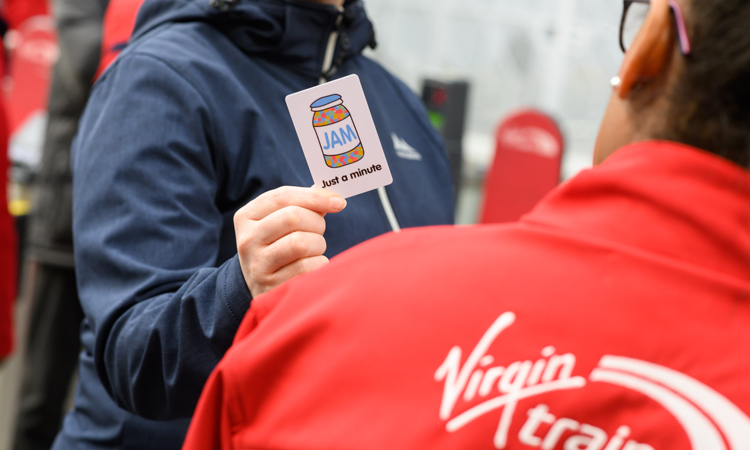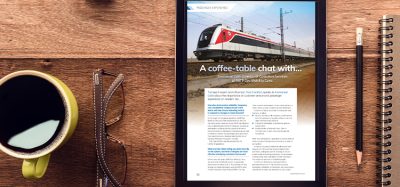For the first time in the UK, the JAM card is introduced to rail
Posted: 12 March 2019 | Global Railway Review | 6 comments
Virgin Trains is now ‘JAM card friendly’, which has been extremely successful in Northern Ireland with over 20,000 cards in circulation and 2,000 app users.


Virgin Trains has introduced an initiative for people with communication barriers: The first travel company to do so outside of Northern Ireland.
This initiative means a passenger can present a JAM card (which stands for ‘Just a Minute’) to Virgin Trains staff, letting them know that they have a communication barrier. This could be a result of number of factors, including autism or a learning difficulty.
The JAM card scheme is being introduced across Virgin Trains routes from March 2019 and follows the company’s recent industry-first initiative with Amazon which allows customers with disabilities to book JourneyCare through Alexa.
In the style of a credit card, a JAM card will help customers discreetly make staff aware of their condition.
Frontline teams at Virgin Trains have been trained to recognise the distinctive card. During training staff gained valuable knowledge about different types of disabilities and have learned how to engage with a customer with a communication barrier.
Customers can apply for a JAM card by filling in a form online or by downloading the app. The card is available in either a physical copy or digital format.
The scheme was brought to the attention of Virgin Trains when customer Abby Cappleman attended one of the regular inclusion panels held by the train operator.
Abby, who has Autism spectrum disorder, said: “The JAM card lets other people – like checkout staff in a supermarket or a bus driver – discretely know that I have an invisible disability. Due to my condition, I am chronically disorganised so I am that person who doesn’t have their money or bus pass ready. I end up faffing to find it and it holds others up. I find this card helps others be more understanding. I am really happy that my suggestion is being adopted to help passengers across the country.”
Maeve Monaghan, CEO of NOW group who is behind the JAM card scheme, said: “We are delighted that Virgin Trains have partnered with NOW Group to become JAM card friendly and recognise the value of investing in training their staff to provide great customer service for people with communication difficulties such as learning difficulties, autism and dementia. This collaboration and investment is the first of its kind in the UK and will see Virgin Trains help raise awareness of the JAM card in Britain.”
Minister for Disabled People, Sarah Newton, said: “Travelling by train can be a stressful experience for people with communication barriers, but initiatives like the JAM card go to show that making small changes can have a massive impact.
“With one in five people in the UK living with a disability or long-term health condition, it’s more important than ever to ensure that frontline staff receive the right training.
“I want to encourage other British train providers to follow Virgin Trains’ lead and ensure they are providing excellent customer service for all their passengers.”
Related topics
Passenger Experience/Satisfaction, Passengers With Reduced Mobility (PRM), Training & Development








Your comment explains the need for the card
When Virgin Trains signed up to the JAM Card, they were actually the second UK rail company to do so (not the first), as NI Railways in Northern Ireland had already done so…Virgin Trains were the first in GB.
Nicely put
I don’t understand. How is that easier to have that card ready than it is to have cash or pass ready? It seems like this would be just another thing one has to remember about and I don’t think it’d help in any way whatsoever.
The card is a discreet way of alerting staff members that a passenger may have difficulties in expressing themselves – for example explaining their destination or type of ticket required (single, return etc) or indeed if they require directions or any other more complex queries. As such problems are frequently invisible, staff then know immediately to be patient and allow them more time. They are not compulsory, so an individual only uses a JAM Card if they feel comfortable using it. If this makes potentially stressful situations for the user easier, then I would fully support its use and believe it has clear benefits for all. If you can’t appreciate its benefits, then you may be fortunate enough not to require one, but I suspect that the initial success of JAM suggests that users do benefit from carrying the Card and they do remember it.
Your comment explains the need for the card